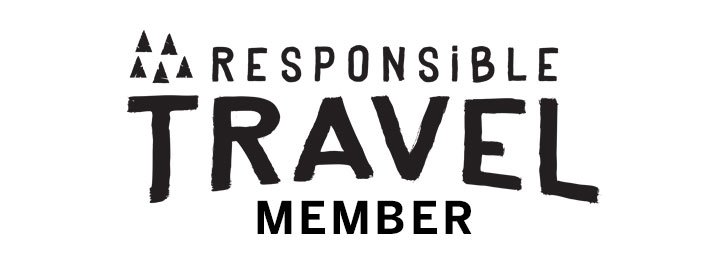Whether you’re a well-versed globetrotter or have just caught the travel bug, culture shock is a real experience that most people encounter at some point on their ventures. We invited blogger Jennifer Fitzpatrick to share about her experience with adapting to a new culture on a recent trip to Nepal. Here are her five tips.
5 tips for Adapting to a new Culture and Embracing Culture Shock
During a recent six months of backpacking around the world with my husband, we visited more than twelve countries on five different continents. Of everywhere we went, Nepal stands out the strongest in my memory. We spent more than three weeks visiting Kathmandu, Pokhara and a week-long trek to Annapurna Base Camp.
Every day was a different experience. Some days were tranquil and others were chaotic. There were times I felt at peace, and there were times I felt overwhelmed. During our stay, I often found myself struggling with a very common phenomenon amongst travelers - culture shock.
Dr. Geert Hofstede, one of the leading cultural experts worldwide, offers this insight:
“Studying culture without experiencing culture shock is like practicing swimming without experiencing water.”
As Dr. Hofstede argues, culture shock is very real. No matter where in the world you visit, you are bound to deal with culture shock at some point along the way. It’s an unavoidable product of traveling and the challenge we face is adjusting to how “different” everything is around us.
Some days may be easy. You might appreciate the new and the different. Things will be different and unexpected, and you’ll embrace them with an open mind. Other days may be a challenge. You may find yourself coping with anxiousness or confusion. You’ll get angry or frustrated over small things that, in hindsight, didn’t really matter.
To navigate your new destination with respect and an open mind, you’ll need practices and strategies to help you adjust. Here are five key tips to help with culture shock during your travels.
1) Do as the locals do
Understanding the local customs, traditions and gestures can make a big difference to your adjustment and doing as much research as possible prior will help you be more aware when you arrive. Learn a bit of the language, even if it’s only “hello” and “thank you.” Observe personal space among local families and friends. Reflect on the presence of or lack of organization in public places and follow along. Rather than resist the way things are done, think of it as expanding your previous ideas and mindsets.
There are great resources for pre-trip cultural preparation, such as the CultureMee app and the Lost Geographer’s country profiles and podcasts. Queue them up for your plane ride and arrive educated and prepared.
2) Understand the why
One of the most challenging aspects of travel can be the overwhelming differences in living conditions and lack of resources you may encounter. It both humbles you and reminds you to travel not just for a vacation, but to have a purpose. Travel can help motivate you to make a positive impact and give back.
I noticed a large amount of trash in the city of Kathmandu. After chatting with our Nepali hosts over shared meals, I began to understand more about the day-to-day challenges in Nepal. While the trash is prevalent, it is not a top concern for many citizens who have other priorities and demands such as their work and caring for their families. 25% of Nepalis live below the poverty line and GDP per capita is $2,700 - one of the lowest in the world and less than 5% that of the U.S. As you walk the streets, you can see evidence of daily struggles, not the least of which is the collective recovery from the earthquake that struck in April of 2015 leading to a devastating loss of life, building collapses and destruction of key cultural and religious sites.
Spending time with our hosts gave me a deeper empathy for these challenges and little by little, I noticed the trash less. I was also inspired to investigate ways to take part in recovery effort through non-profits and local organizations as well as through responsible travel tenants such as carrying my own water bottle, using a portable water filter and leaving no trace when hiking.
3) Embrace food as a portal to culture
Whether you are trekking in the Annapurna Region or visiting the Monkey Temple in Kathmandu, staying properly hydrated and fed is important. Feelings of frustration, impatience and anger can quickly be exacerbated by an empty stomach (aka, being hangry!).
One of the best ways to integrate this into your travel experience is to try local dishes. Learning about the foods you are eating, the spices and flavors that go into them, the techniques used to cook them and the way they are eaten enhances your knowledge of the culture. The more things become familiar to you, the less they will seem strange.
After eating dahl bat for many meals with a fork and knife during our Annapurna Trek, I observed the local guides eating together and noticed no utensils were used. Instead, they combined the rice, lentils, and vegetables into a ball using their right hand and ate them all mixed together. While I didn’t use my hands the next time I ate dahl bat, I combined the ingredients with my fork to taste it the local way - I was hooked!
4) Write it down
Keeping a journal is a wonderful way to recount your memories, experiences and activities during your travels. It’s a place to record any private emotions or thoughts you may be struggling with as you process this new destination. You may find that your feelings evolve and change during your time abroad. How you feel on day one versus how you feel on day ten may offer new insight to your journey. It may be interesting to look back and see how you transformed during your time there.
Remember that human connection is important. Have a coffee or masala chai with other travelers and talk about your experience. Sit down with your guide, hosts and other locals to learn more about the culture you are visiting. Ask questions, laugh and learn.
If you are traveling with someone else, let them in on how you are doing. My husband Dylan was a big source of emotional support for me during our travels. He kept me calm in those first few days of adjusting to the fast pace of Nepal.
5) Breathe, then let it go
This may be the most challenging aspect of traveling. In the moment, you might be frustrated, overwhelmed and confused. Accepting and embracing a lifestyle you don’t know takes time. Give yourself permission to have both good days and bad days. Understand that it is part of the journey.
In those challenging moments, stop what you are doing. Close your eyes for a few seconds and take a deep breath. Be appreciative of where you are and remember you may never be here again. Use this chance to learn from another culture, people and community. With that mindset, you can look back on your experience with new knowledge and understanding of the world we live in.
While culture shock is an inevitable part of traveling, using these strategies will allow you to empathize with others, be ready for the unexpected and connect with your destination on a deeper level.










